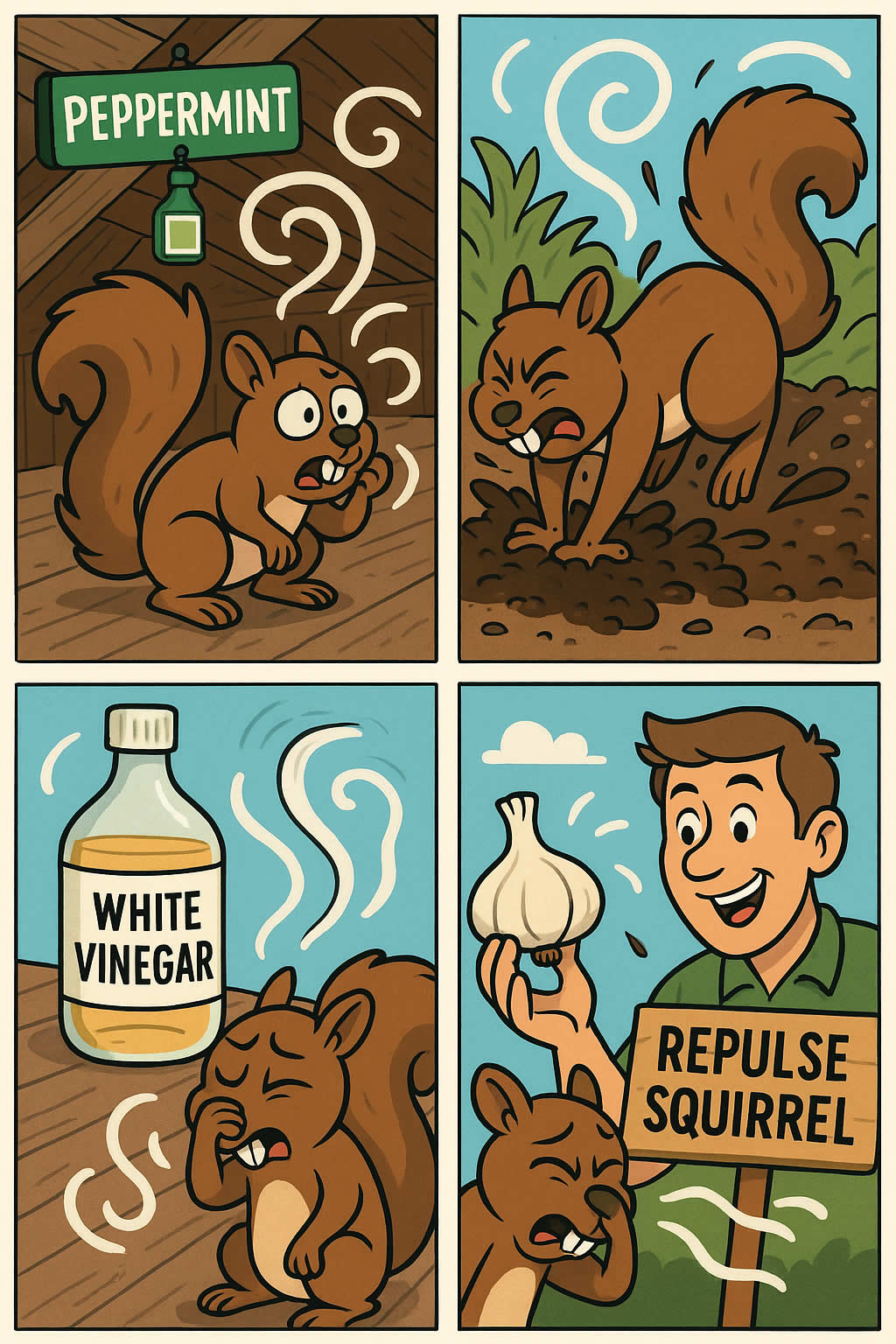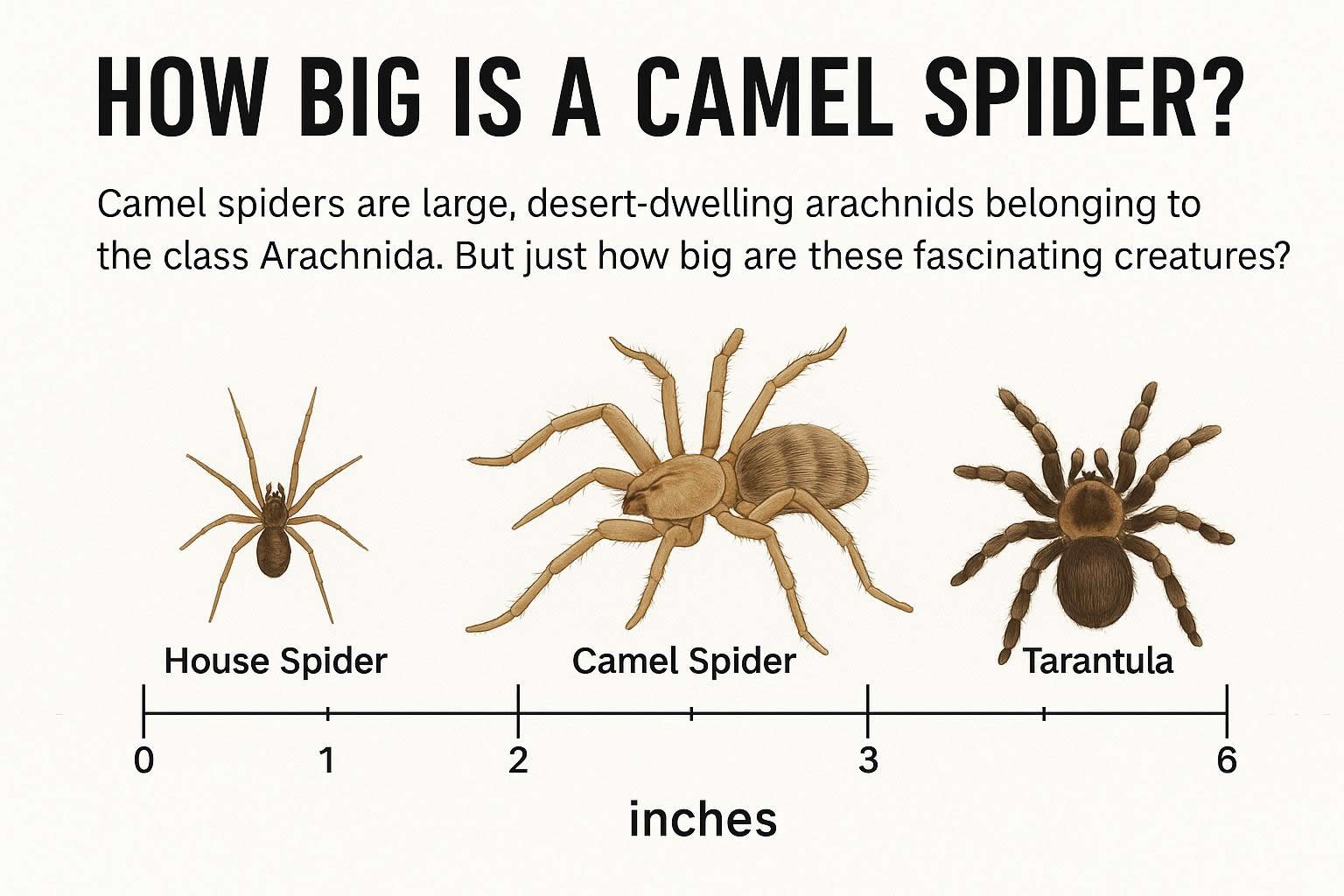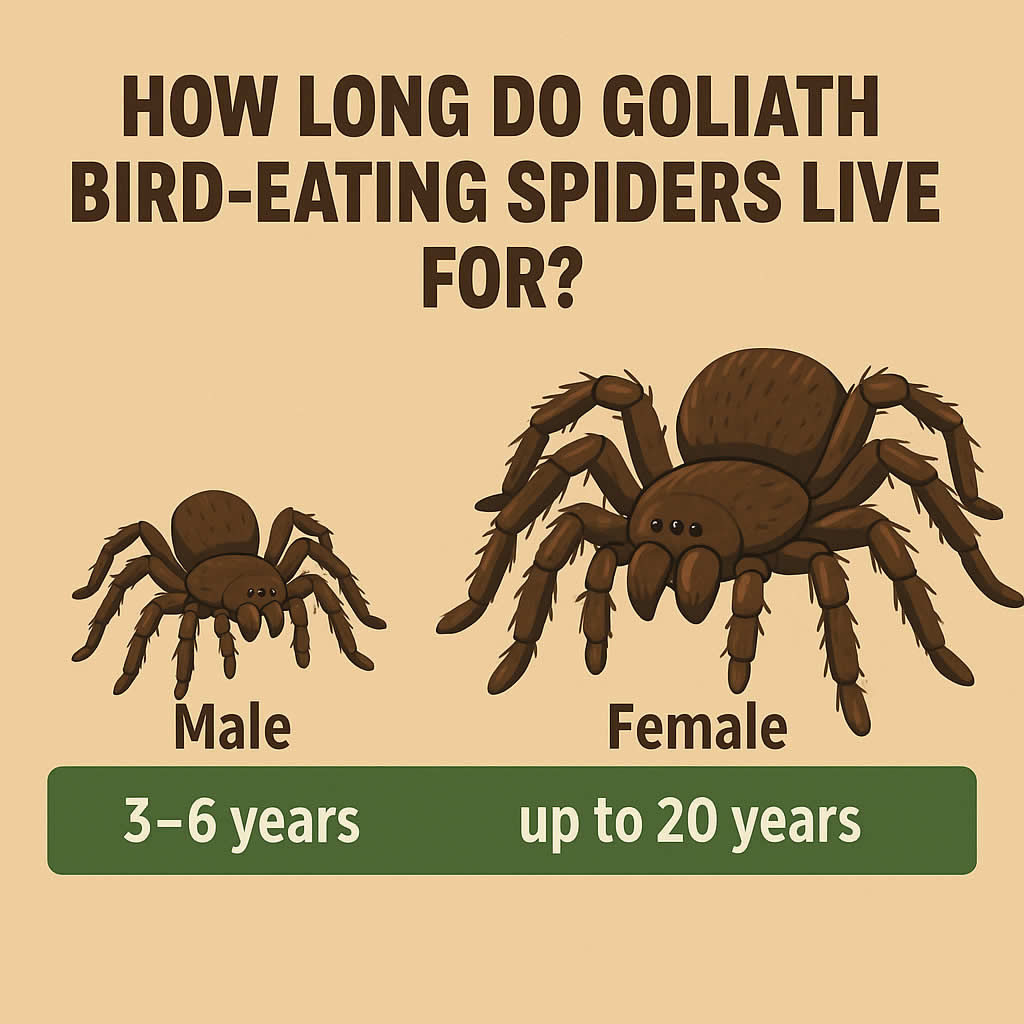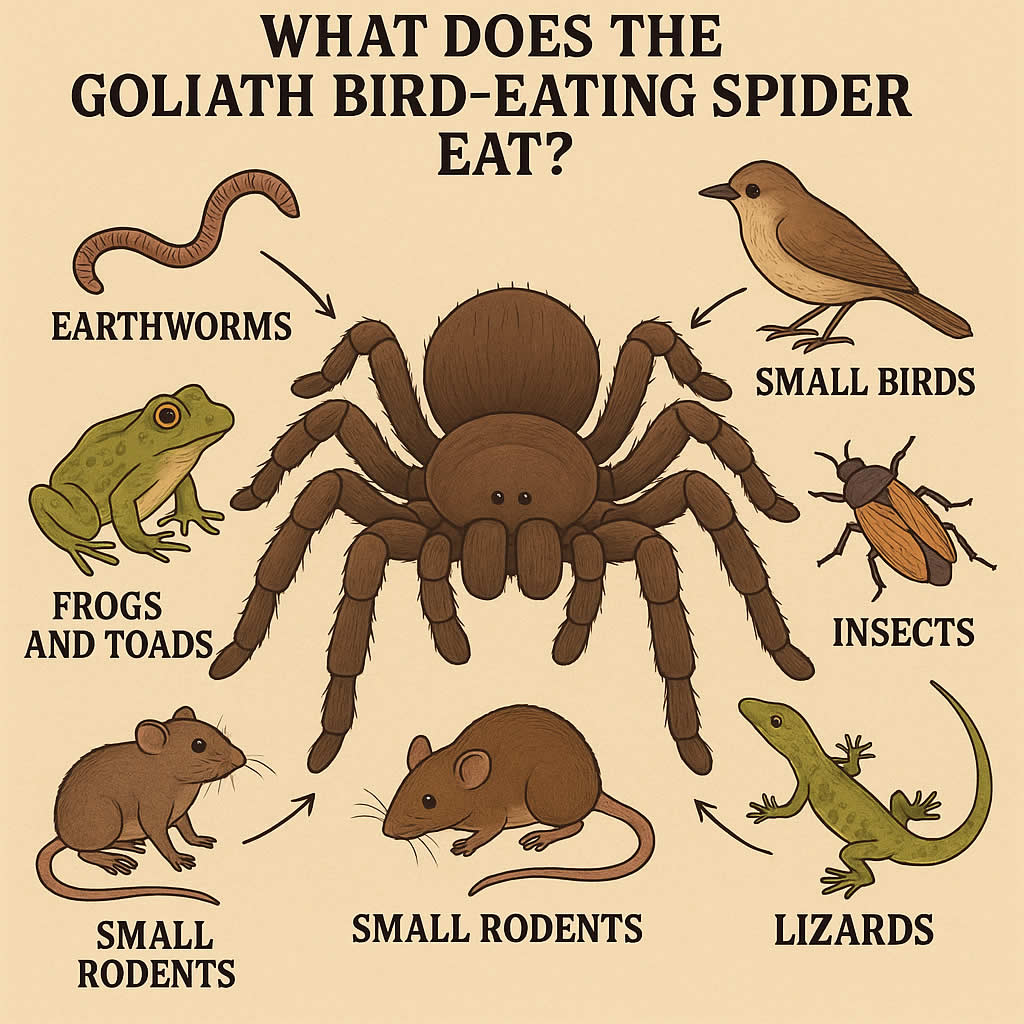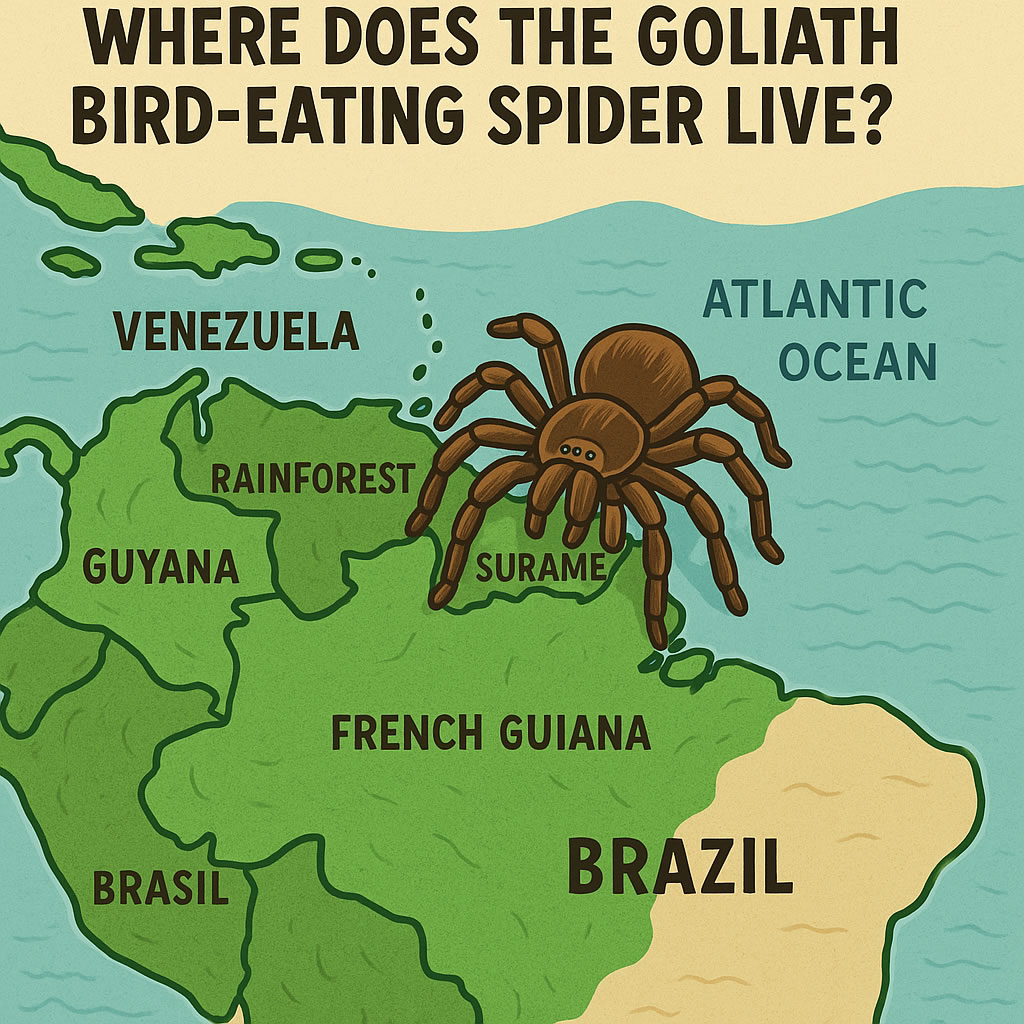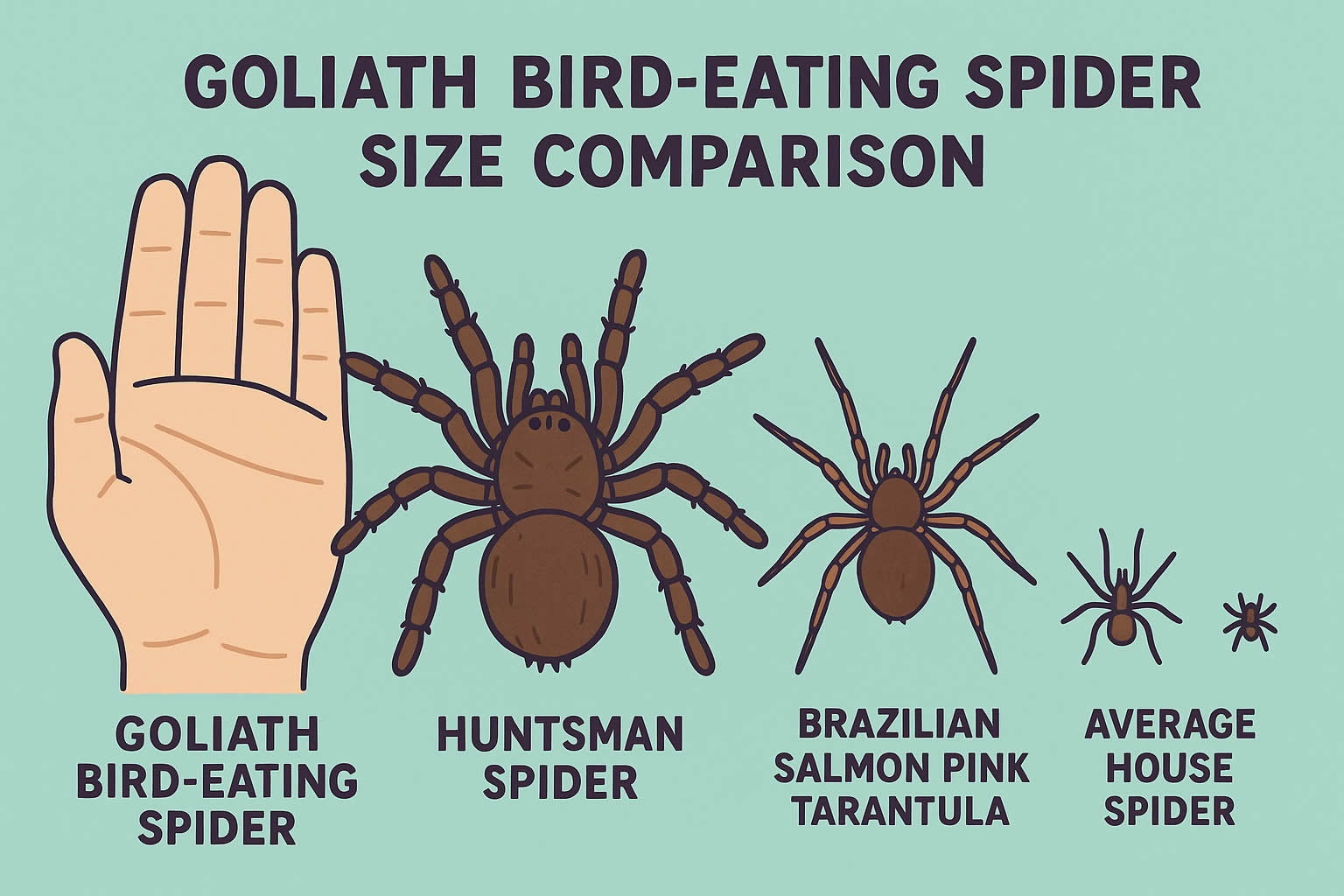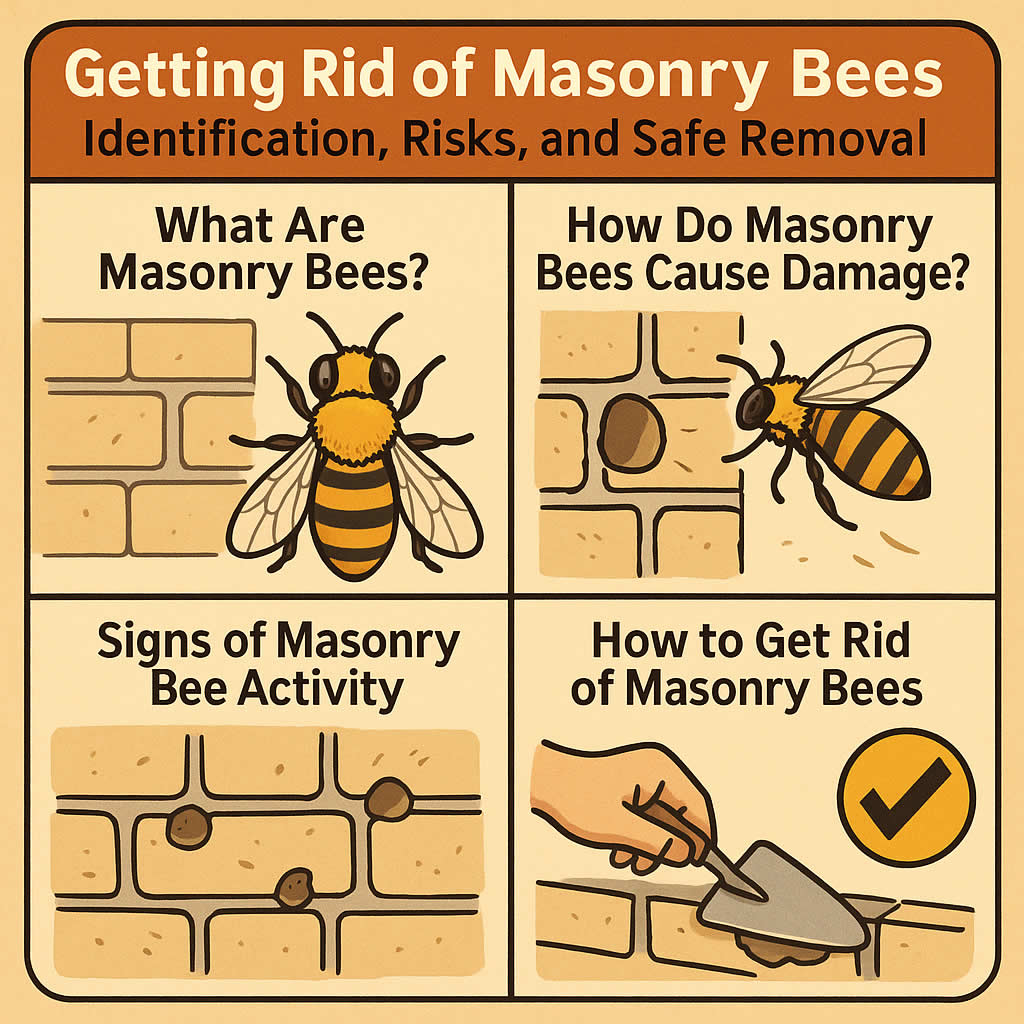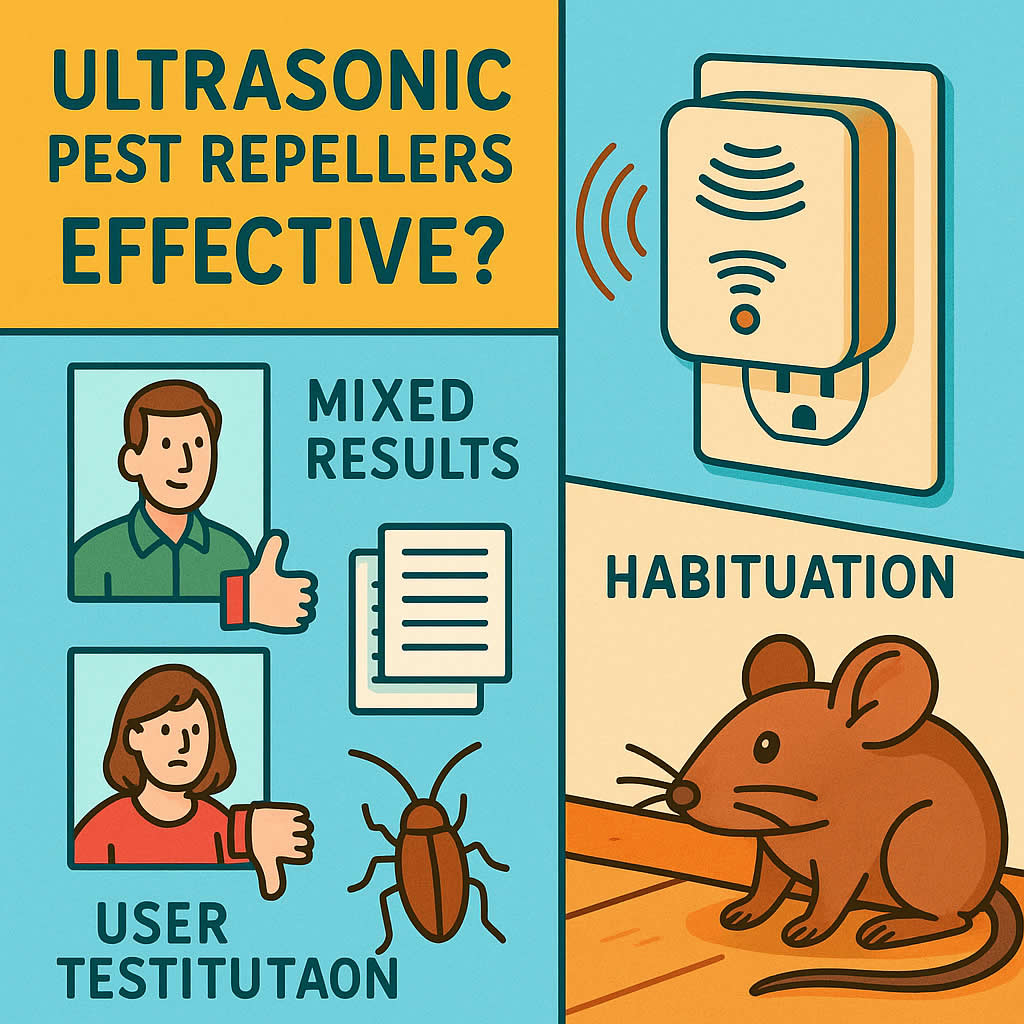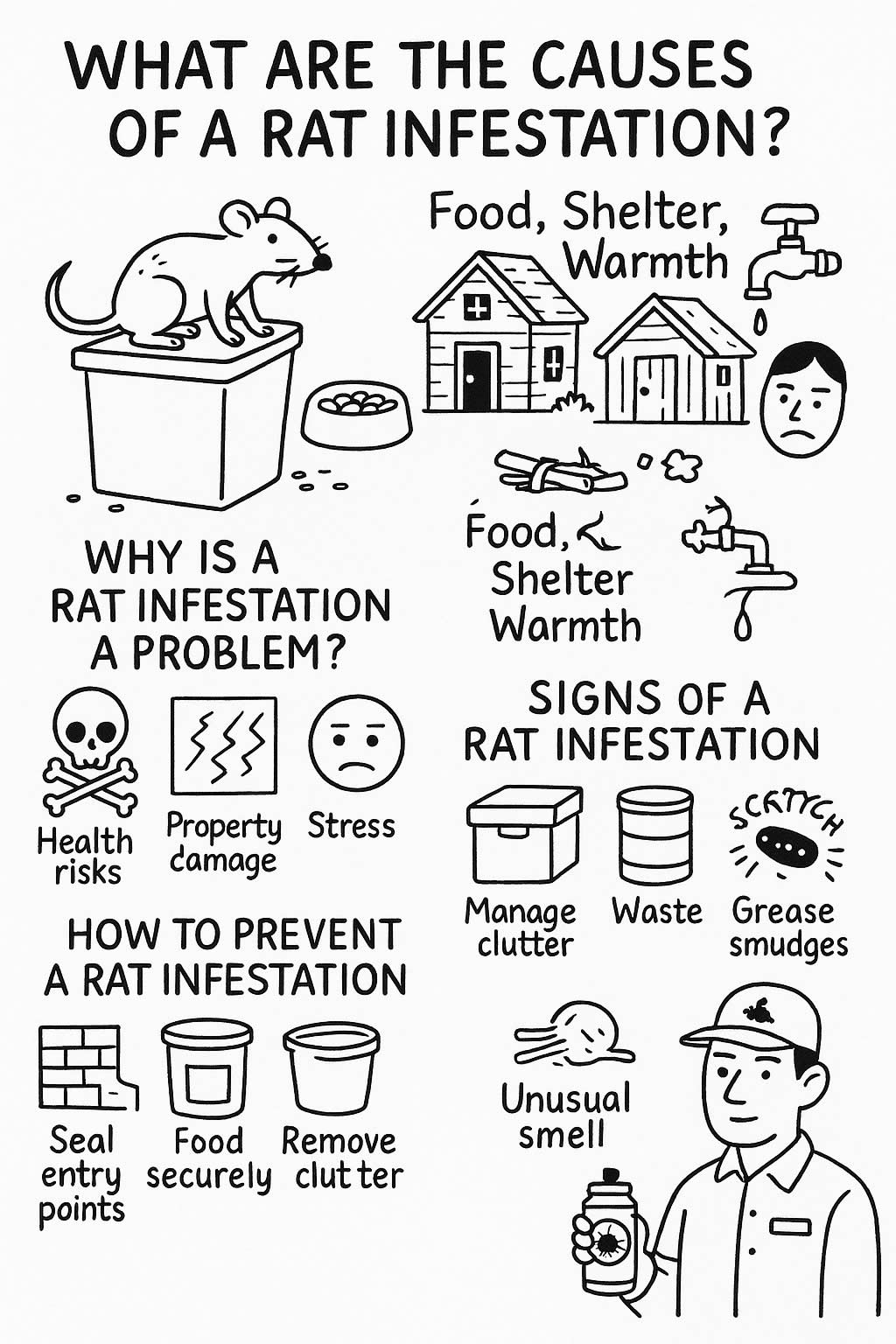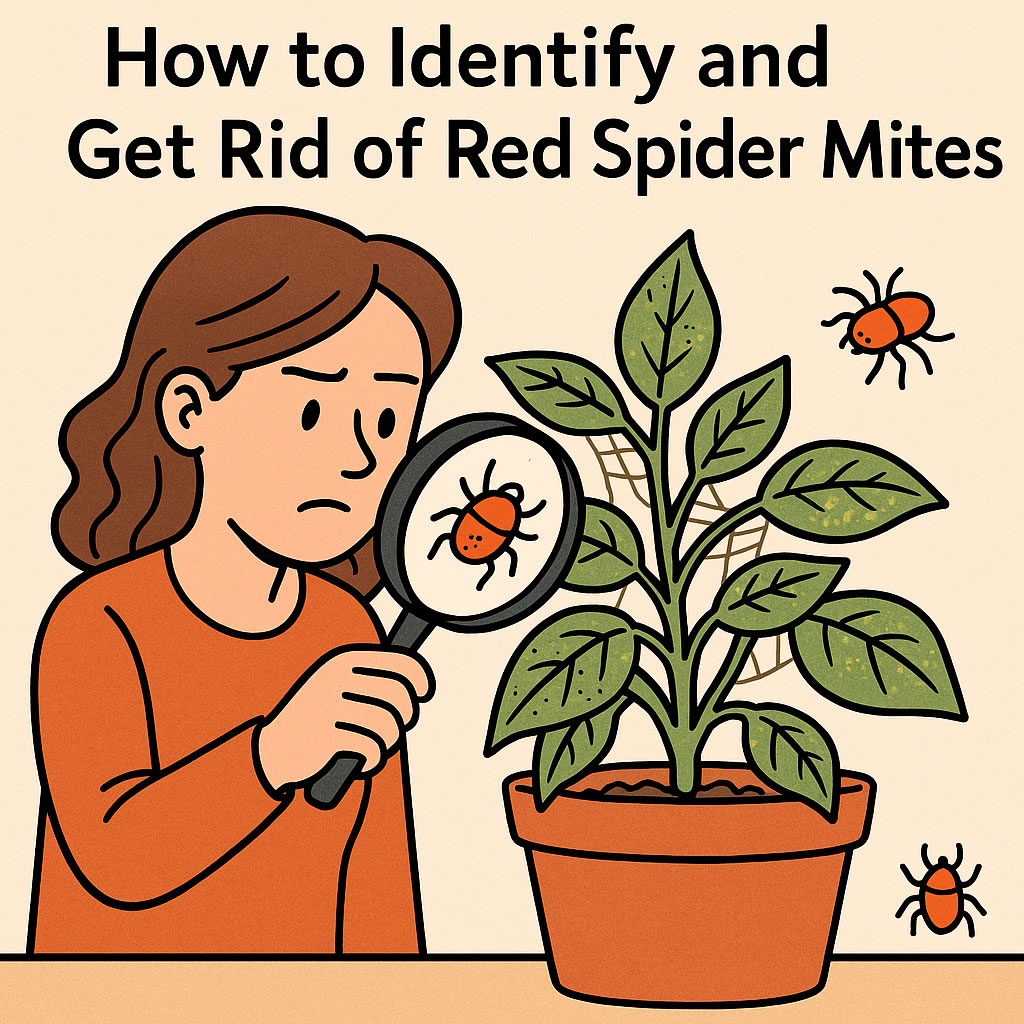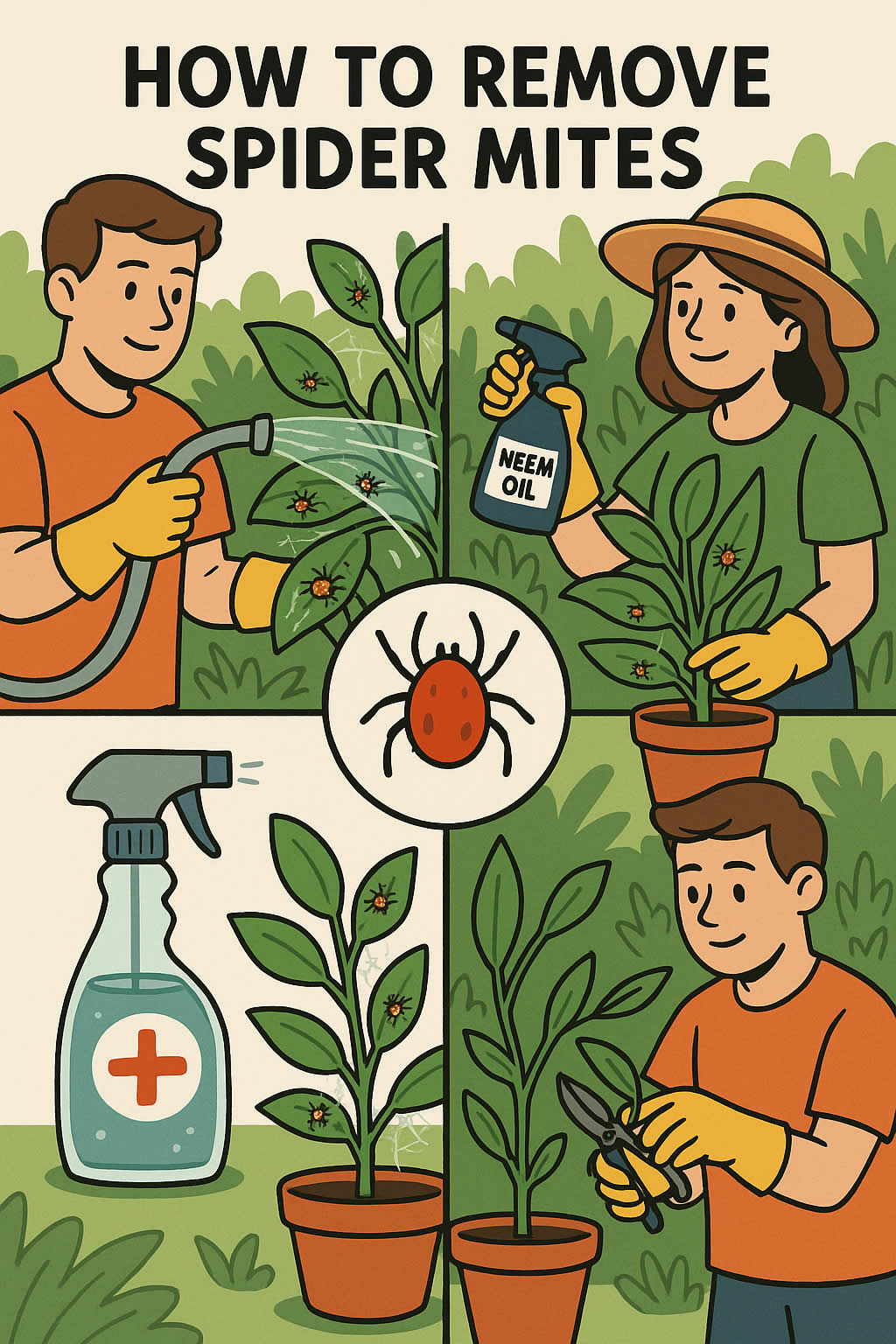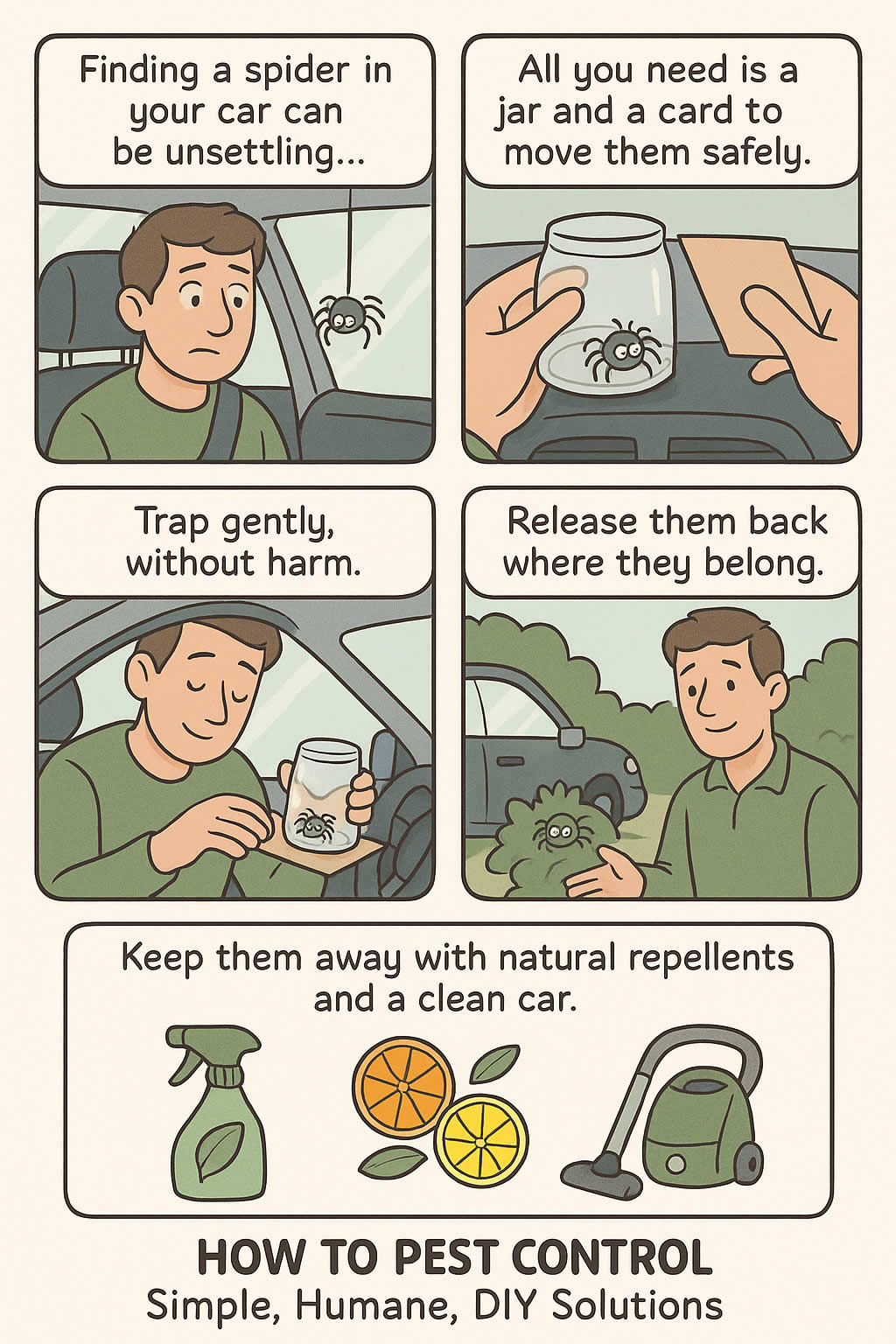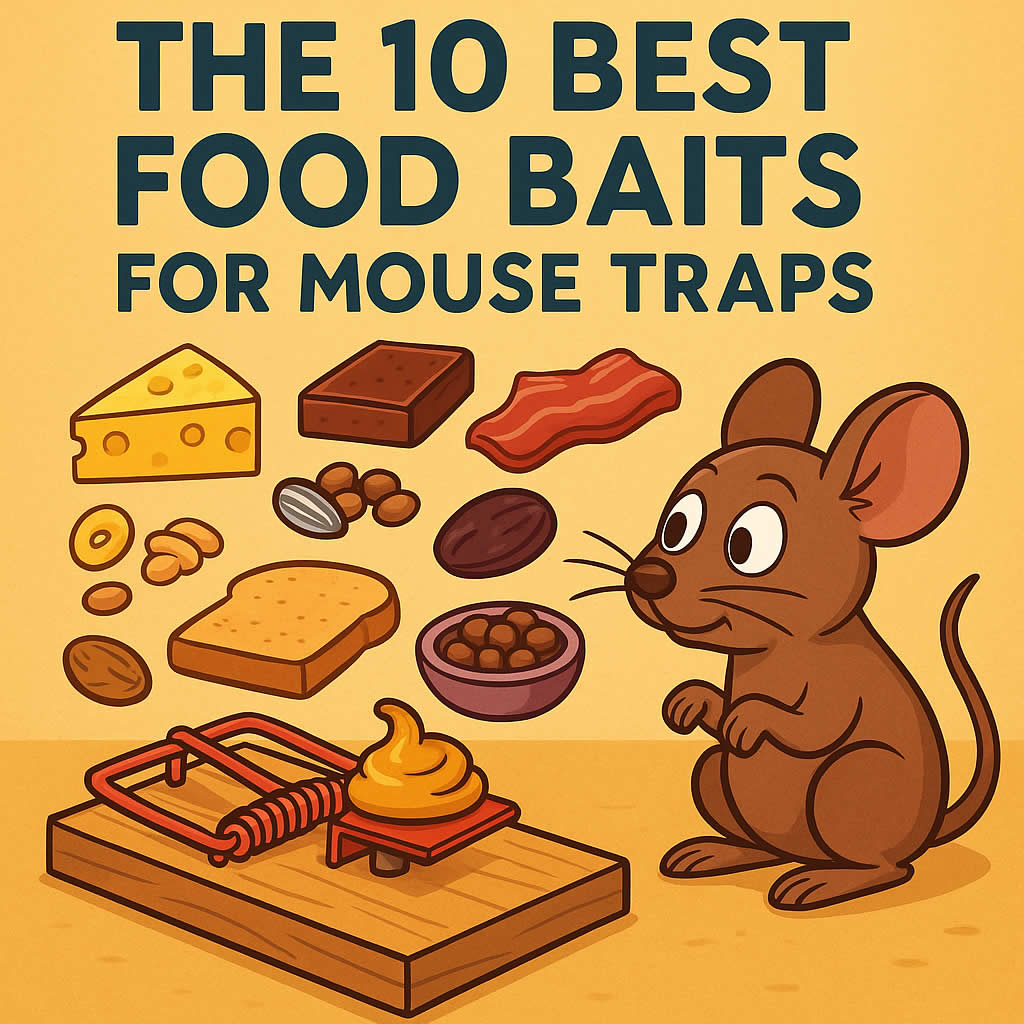Related Queries
ToggleIf you’ve had squirrels messing around in your loft, digging up your garden, or chewing through cables and insulation, you’ll know just how frustrating they can be. These clever little creatures might look harmless, but once they decide to make themselves at home, they can be incredibly persistent.
So how do you stop them without using traps or poisons? One of the simplest and most natural ways is by using scent. Squirrels have a powerful sense of smell, and there are certain scents they absolutely can’t stand. If you understand what those are—and how to use them properly—you can create a space they’ll want to avoid entirely.
Let’s break it down, so you know what smells repel squirrels and how to use that to your advantage.
Why Do Squirrels Hate Certain Smells?
Squirrels rely heavily on their noses to find food, detect danger, and communicate with each other. Their sense of smell is much stronger than ours, which is why certain odours we barely notice can completely overwhelm them.
Strong, sharp, or bitter smells can confuse or repel squirrels. Some smells trigger a fear response—making them think predators are nearby. Others simply irritate them or interfere with their ability to sniff out food and safety.
That’s why scent-based repellents can work so well when used correctly. They make an area feel unsafe or unpleasant, which encourages the squirrel to leave and find somewhere more comfortable.
Smells That Naturally Repel Squirrels
There’s no single magic scent that works on every squirrel in every situation, but there are several smells that consistently trigger avoidance behaviour. You’ll get the best results by using them together or rotating between them, especially if the squirrels have already got used to your space.
Peppermint Oil
Peppermint is one of the most widely used natural squirrel repellents. Its strong menthol scent is overwhelming to squirrels and masks the odours they’re trying to detect—like food, mates, or nesting spots.
If you want to keep squirrels away from a specific area, like your loft, garage, or decking, soak cotton balls in peppermint oil and place them near entry points. You can also mix a few drops with water and spray it around.
Reapply every few days or after rain. The smell fades quickly outdoors, so consistency is key.
White Vinegar
White vinegar has a sharp, acidic smell that squirrels dislike. It also helps remove food odours that might attract them in the first place.
You can soak rags in vinegar and leave them in trouble spots, or spray diluted vinegar onto decking, bins, fences, or near bird feeders. Be cautious using vinegar on plants, though—it can damage leaves and soil if overused.
Indoors, vinegar can be used around loft spaces or attic corners to reinforce other repellents.
Garlic
Garlic has a strong, pungent aroma that lingers. You can crush fresh garlic cloves and scatter them where squirrels are getting in, or mix garlic with water to create a homemade spray.
It’s not the nicest smell for you either, so it’s best for use in sheds, garages, or areas away from windows.
Garlic also has mild antifungal properties, which can help deter other pests too.
Chilli and Cayenne Pepper
Spicy smells—especially capsaicin, the active compound in chillies—are a major irritant for squirrels. They don’t like the sharpness of it in the air, and if they taste it by accident, they’ll remember it.
You can sprinkle cayenne pepper, chilli powder, or crushed dried chillies around flower beds, bird feeders, or entry points. Just avoid using it directly on plants or areas where pets might walk.
Some people also mix chilli powder with vinegar or water to create a spray, but be careful where you apply it—it can stain surfaces and irritate human skin too.
Coffee Grounds
Used coffee grounds have a bitter smell that squirrels dislike, especially when they’re fresh. They also change the scent of the soil, which can confuse squirrels that have been digging or burying food.
Sprinkle grounds around garden beds or potted plants. It’s a gentle deterrent and also adds a bit of organic matter to the soil. Just make sure you don’t pile it too thick or you’ll affect the pH of the soil over time.
It’s not the strongest repellent on its own, but it’s handy for mild problems or as part of a bigger plan.
Predator Urine
This might sound extreme, but it’s a natural and effective method—especially in rural areas. Squirrels are prey animals, and the smell of predators like foxes, coyotes, or even big cats can trigger a strong fear response.
Predator urine products are available in garden centres or online. They come in granules, sprays, or liquid form. Apply them around the perimeter of your garden or near squirrel entry points.
Be warned, though—it does smell like what it is. Use it sparingly and away from your own living space.
Mothballs and Ammonia (Use with Caution)
Some people use mothballs or ammonia-soaked cloths in lofts or garages to drive out squirrels. These smells are harsh, chemical-based, and very unpleasant for squirrels—but they’re also toxic to humans and pets.
If you choose to go this route, keep them in sealed containers with air holes, out of reach, and away from any living areas. They should never be used in open spaces or where children or animals could come into contact with them.
There are safer, more natural options, so only use these when absolutely necessary—and always follow the safety guidelines.
Where to Use These Smells for Best Results
To get the most out of any scent-based repellent, you need to use it in the right places. Squirrels are usually entering your space through a specific route, looking for warmth, food, or shelter. Focus your efforts there.
In the loft or attic:
Soak cotton balls or rags in peppermint oil, vinegar, or ammonia and place them near gaps, vents, or corners where squirrels are nesting.
Around the garden:
Sprinkle chilli powder or coffee grounds in garden beds, around bird feeders, and near fence posts. Rotate smells weekly to keep squirrels from getting used to them.
On decking or shed roofs:
Spray diluted garlic or peppermint oil near edges, and reapply after rain. Squirrels often use sheds as launching points to reach roofs or trees.
Near bins or compost:
Use strong smells like vinegar or predator urine around the base of bins to mask food smells and keep squirrels from digging.
If you’re dealing with a stubborn squirrel or a recurring problem, combine scents with physical barriers like wire mesh, squirrel-proof bird feeders, or blocking up entry holes.
Are These Methods Safe Around Pets?
Some scents—like peppermint, vinegar, and garlic—are safe around most pets when used correctly. But be cautious with essential oils, especially around cats, who can be sensitive to even small amounts.
Avoid chilli powder and ammonia where pets walk or play. Inhaling or licking these substances can irritate their mouths, eyes, or paws.
If you’re unsure, try keeping scent repellents in enclosed jars with holes in the lid. That way the smell spreads, but your pets can’t touch or ingest anything.
Always double-check labels if you’re using commercial repellents, and keep pets away from treated areas until things are dry or aired out.
Can Squirrels Get Used to These Smells?
Yes, they can. Squirrels are clever and adaptable. If a smell doesn’t lead to any real threat—or if it fades quickly—they’ll eventually ignore it. That’s why rotating scents or refreshing them often is so important.
For example, if you use peppermint oil every day in the same spot, squirrels might back off at first but return once the smell fades or becomes familiar. Try switching to garlic or chilli for a week, then come back to peppermint.
Combining scent with movement—like hanging aluminium foil strips, motion-activated sprinklers, or wind chimes—can also help keep squirrels on their toes.
Related Questions People Ask
Do squirrels hate citrus smells?
Yes—many do. The sharp, tangy scent of citrus fruits like lemon, orange, and grapefruit can be off-putting. You can use citrus essential oils or even leave citrus peels around problem areas. It’s not the strongest deterrent, but it helps when used with other methods.
Will cinnamon keep squirrels away?
Cinnamon has a spicy, earthy smell that some squirrels avoid—but it’s not as reliable as peppermint or chilli. You can try it as part of a spray, but don’t expect it to work on its own.
Is lavender a squirrel repellent?
Lavender is calming to humans but can irritate squirrels. It’s not as strong as other scents, but if you like the smell yourself, it’s a nice one to include in a homemade repellent mix.
Do dryer sheets repel squirrels?
Some people claim dryer sheets work because of their strong fragrance. They may deter squirrels in the short term, but they lose their scent quickly and aren’t as effective as essential oils or natural deterrents.
How long do scent repellents last outdoors?
Usually just a few days—especially if it rains. Wind, sunlight, and moisture all break down smells quickly. You’ll need to reapply every three to five days, or more often in wet weather.
Final Takeaway
Scent is a powerful tool when you’re trying to keep squirrels away from your home or garden. They’ve got strong noses and strong opinions—and with the right smells, you can make your space somewhere they’d rather not be.
Focus on sharp, irritating scents like peppermint, vinegar, garlic, and chilli. Use them where the squirrels are coming in, and keep reapplying to stay ahead. Combine smell with good housekeeping, physical barriers, and a bit of patience.
No method is foolproof, but by working with the way squirrels think—and sniff—you can protect your space without harming the wildlife.
The goal isn’t just to chase them off—it’s to make your home the last place they want to return to.
Pest Control Leedon – Pest Control Shelton – Pest Control Stewartby
